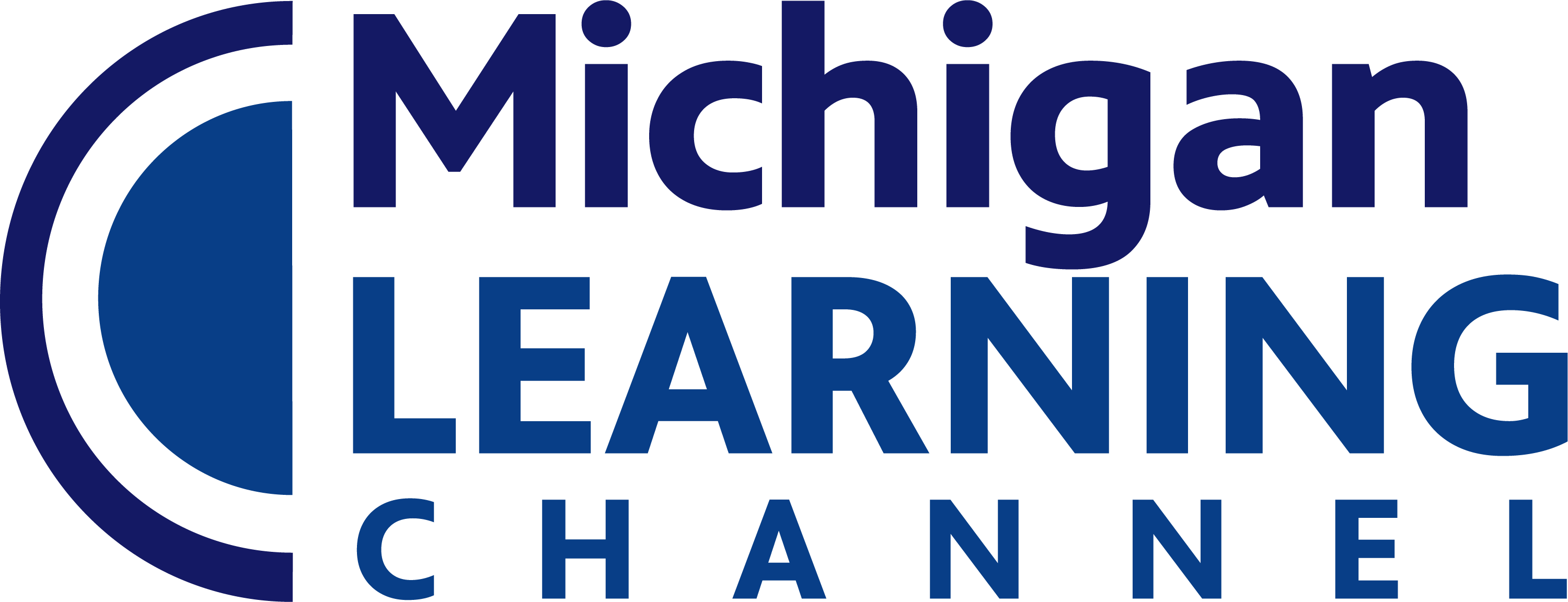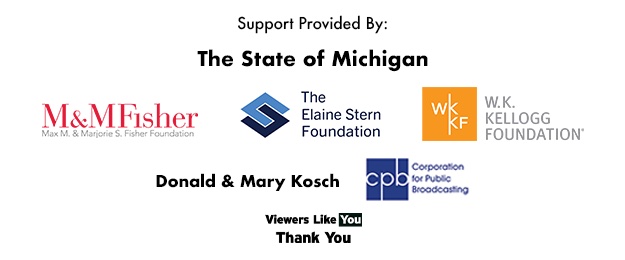Subjects
Shows
Evaluate a speaker’s point of view, reasoning, and use of evidence and rhetoric, identifying any fallacious reasoning or exaggerated or [...]
Present information, findings, and supporting evidence clearly, concisely, and logically such that listeners can follow the line of reasoning and [...]
Make strategic use of digital media (e.g., textual, graphical, audio, visual, and interactive elements) in presentations to enhance understanding of [...]
Adapt speech to a variety of contexts and tasks, demonstrating command of formal English when indicated or appropriate. (See grades [...]
Demonstrate command of the conventions of standard English grammar and usage when writing or speaking.
Use various types of phrases (noun, verb, adjectival, adverbial, participial, prepositional, absolute) and clauses (independent, dependent; noun, relative, adverbial) to [...]
Demonstrate command of the conventions of standard English capitalization, punctuation, and spelling when writing.
Use a semicolon (and perhaps a conjunctive adverb) to link two or more closely related independent clauses.
Apply knowledge of language to understand how language functions in different contexts, to make effective choices for meaning or style, [...]
Provide a concluding statement or section that follows from and supports the argument presented.
Write informative/explanatory texts to examine and convey complex ideas, concepts, and information clearly and accurately through the effective selection, organization, [...]
Introduce a topic; organize complex ideas, concepts, and information to make important connections and distinctions; include formatting (e.g., headings), graphics [...]
Develop the topic with well-chosen, relevant, and sufficient facts, extended definitions, concrete details, quotations, or other information and examples appropriate [...]
Use appropriate and varied transitions to link the major sections of the text, create cohesion, and clarify the relationships among [...]
Use precise language and domain-specific vocabulary to manage the complexity of the topic.
Establish and maintain a formal style and objective tone while attending to the norms and conventions of the discipline in [...]
Provide a concluding statement or section that follows from and supports the information or explanation presented (e.g., articulating implications or [...]
Write narratives to develop real or imagined experiences or events using effective technique, well-chosen details, and well-structured event sequences.
Engage and orient the reader by setting out a problem, situation, or observation, establishing one or multiple point(s) of view, [...]
Use narrative techniques, such as dialogue, pacing, description, reflection, and multiple plot lines, to develop experiences, events, and/or characters.
Use a variety of techniques to sequence events so that they build on one another to create a coherent whole.
Use precise words and phrases, telling details, and sensory language to convey a vivid picture of the experiences, events, setting, [...]
Provide a conclusion that follows from and reflects on what is experienced, observed, or resolved over the course of the [...]
Produce clear and coherent writing in which the development, organization, and style are appropriate to task, purpose, and audience. (Grade-specific [...]
Develop and strengthen writing as needed by planning, revising, editing, rewriting, or trying a new approach, focusing on addressing what [...]
Use technology, including the Internet, to produce, publish, and update individual or shared writing products, taking advantage of technology’s capacity [...]
Conduct short as well as more sustained research projects to answer a question (including a self-generated question) or solve a [...]
Gather relevant information from multiple authoritative print and digital sources, using advanced searches effectively; assess the usefulness of each source [...]
Draw evidence from literary or informational texts to support analysis, reflection, and research.
Analyze how an author’s choices concerning how to structure a text, order events within it (e.g., parallel plots), and manipulate [...]
Analyze a particular point of view or cultural experience reflected in a work of literature from outside the United States, [...]
Analyze the representation of a subject or a key scene in two different artistic mediums, including what is emphasized or [...]
Analyze how an author draws on and transforms source material in a specific work (e.g., how Shakespeare treats a theme [...]
Cite strong and thorough textual evidence to support analysis of what the text says explicitly as well as inferences drawn [...]
By the end of grade 9, read and comprehend literary nonfiction in the grades 9–10 text complexity band proficiently, with [...]
Determine a central idea of a text and analyze its development over the course of the text, including how it [...]
Analyze how the author unfolds an analysis or series of ideas or events, including the order in which the points [...]
Determine the meaning of words and phrases as they are used in a text, including figurative, connotative, and technical meanings; [...]
Analyze in detail how an author’s ideas or claims are developed and refined by particular sentences, paragraphs, or larger portions [...]
Determine an author’s point of view or purpose in a text and analyze how an author uses rhetoric to advance [...]
Analyze various accounts of a subject told in different mediums (e.g., a person’s life story in both print and multimedia), [...]
Delineate and evaluate the argument and specific claims in a text, assessing whether the reasoning is valid and the evidence [...]
Analyze seminal U.S. documents of historical and literary significance (e.g., Washington’s Farewell Address, the Gettysburg Address, Roosevelt’s Four Freedoms speech, [...]
Write arguments to support claims in an analysis of substantive topics or texts, using valid reasoning and relevant and sufficient [...]
Write routinely over extended time frames (time for research, reflection, and revision) and shorter time frames (a single sitting or [...]
Introduce precise claim(s), distinguish the claim(s) from alternate or opposing claims, and create an organization that establishes clear relationships among [...]
Develop claim(s) and counterclaims fairly, supplying evidence for each while pointing out the strengths and limitations of both in a [...]
Subjects
Shows
Evaluate a speaker’s point of view, reasoning, and use of evidence and rhetoric, identifying any fallacious reasoning or exaggerated or [...]
Present information, findings, and supporting evidence clearly, concisely, and logically such that listeners can follow the line of reasoning and [...]
Make strategic use of digital media (e.g., textual, graphical, audio, visual, and interactive elements) in presentations to enhance understanding of [...]
Adapt speech to a variety of contexts and tasks, demonstrating command of formal English when indicated or appropriate. (See grades [...]
Demonstrate command of the conventions of standard English grammar and usage when writing or speaking.
Use various types of phrases (noun, verb, adjectival, adverbial, participial, prepositional, absolute) and clauses (independent, dependent; noun, relative, adverbial) to [...]
Demonstrate command of the conventions of standard English capitalization, punctuation, and spelling when writing.
Use a semicolon (and perhaps a conjunctive adverb) to link two or more closely related independent clauses.
Apply knowledge of language to understand how language functions in different contexts, to make effective choices for meaning or style, [...]
Provide a concluding statement or section that follows from and supports the argument presented.
Write informative/explanatory texts to examine and convey complex ideas, concepts, and information clearly and accurately through the effective selection, organization, [...]
Introduce a topic; organize complex ideas, concepts, and information to make important connections and distinctions; include formatting (e.g., headings), graphics [...]
Develop the topic with well-chosen, relevant, and sufficient facts, extended definitions, concrete details, quotations, or other information and examples appropriate [...]
Use appropriate and varied transitions to link the major sections of the text, create cohesion, and clarify the relationships among [...]
Use precise language and domain-specific vocabulary to manage the complexity of the topic.
Establish and maintain a formal style and objective tone while attending to the norms and conventions of the discipline in [...]
Provide a concluding statement or section that follows from and supports the information or explanation presented (e.g., articulating implications or [...]
Write narratives to develop real or imagined experiences or events using effective technique, well-chosen details, and well-structured event sequences.
Engage and orient the reader by setting out a problem, situation, or observation, establishing one or multiple point(s) of view, [...]
Use narrative techniques, such as dialogue, pacing, description, reflection, and multiple plot lines, to develop experiences, events, and/or characters.
Use a variety of techniques to sequence events so that they build on one another to create a coherent whole.
Use precise words and phrases, telling details, and sensory language to convey a vivid picture of the experiences, events, setting, [...]
Provide a conclusion that follows from and reflects on what is experienced, observed, or resolved over the course of the [...]
Produce clear and coherent writing in which the development, organization, and style are appropriate to task, purpose, and audience. (Grade-specific [...]
Develop and strengthen writing as needed by planning, revising, editing, rewriting, or trying a new approach, focusing on addressing what [...]
Use technology, including the Internet, to produce, publish, and update individual or shared writing products, taking advantage of technology’s capacity [...]
Conduct short as well as more sustained research projects to answer a question (including a self-generated question) or solve a [...]
Gather relevant information from multiple authoritative print and digital sources, using advanced searches effectively; assess the usefulness of each source [...]
Draw evidence from literary or informational texts to support analysis, reflection, and research.
Analyze how an author’s choices concerning how to structure a text, order events within it (e.g., parallel plots), and manipulate [...]
Analyze a particular point of view or cultural experience reflected in a work of literature from outside the United States, [...]
Analyze the representation of a subject or a key scene in two different artistic mediums, including what is emphasized or [...]
Analyze how an author draws on and transforms source material in a specific work (e.g., how Shakespeare treats a theme [...]
Cite strong and thorough textual evidence to support analysis of what the text says explicitly as well as inferences drawn [...]
By the end of grade 9, read and comprehend literary nonfiction in the grades 9–10 text complexity band proficiently, with [...]
Determine a central idea of a text and analyze its development over the course of the text, including how it [...]
Analyze how the author unfolds an analysis or series of ideas or events, including the order in which the points [...]
Determine the meaning of words and phrases as they are used in a text, including figurative, connotative, and technical meanings; [...]
Analyze in detail how an author’s ideas or claims are developed and refined by particular sentences, paragraphs, or larger portions [...]
Determine an author’s point of view or purpose in a text and analyze how an author uses rhetoric to advance [...]
Analyze various accounts of a subject told in different mediums (e.g., a person’s life story in both print and multimedia), [...]
Delineate and evaluate the argument and specific claims in a text, assessing whether the reasoning is valid and the evidence [...]
Analyze seminal U.S. documents of historical and literary significance (e.g., Washington’s Farewell Address, the Gettysburg Address, Roosevelt’s Four Freedoms speech, [...]
Write arguments to support claims in an analysis of substantive topics or texts, using valid reasoning and relevant and sufficient [...]
Write routinely over extended time frames (time for research, reflection, and revision) and shorter time frames (a single sitting or [...]
Introduce precise claim(s), distinguish the claim(s) from alternate or opposing claims, and create an organization that establishes clear relationships among [...]
Develop claim(s) and counterclaims fairly, supplying evidence for each while pointing out the strengths and limitations of both in a [...]


